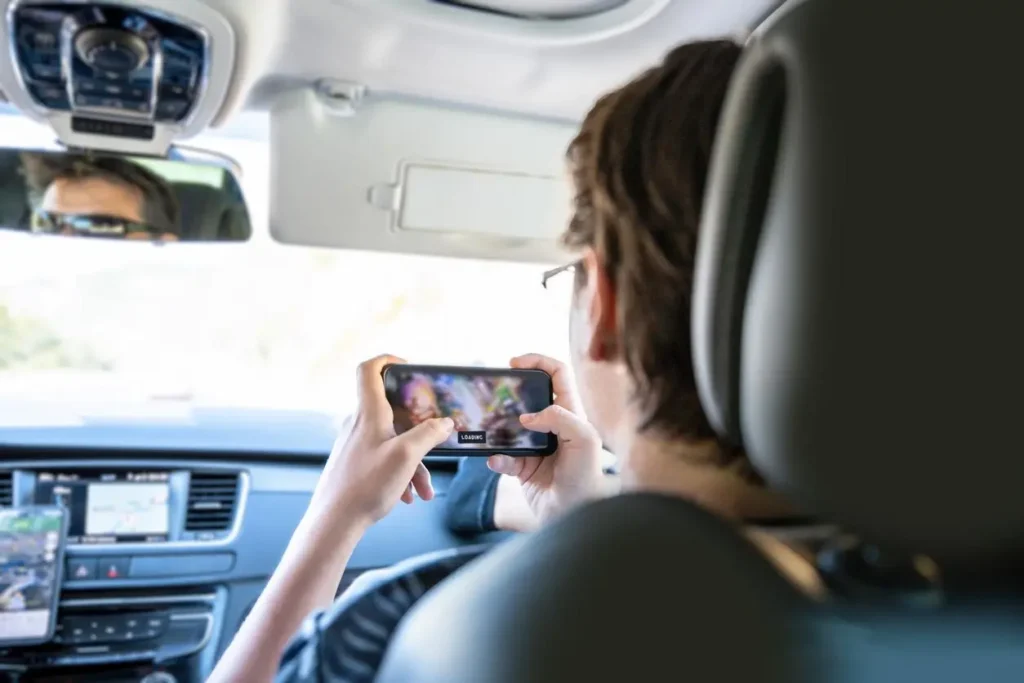Can Streaming or Gaming in the Car Get You in Legal Trouble in Texas?

Watching shows or gaming while driving can seem an easy way to slay boredom, but such is a recipe for legal trouble in Texas as soon as you’re on the road. According to state law, it is illegal for drivers to watch a video or play a game on devices that can be seen from the driver’s seat when driving a vehicle. Law enforcement is concerned with this matter because such distractions cause more crashes on Texas roads.
Anyone who is streaming or gaming while driving would be penalized; in the case of an accident, the penalties can be further punitive. When you find yourself victimized by another person’s distracted driving, exploring your legal options after a tech-related crash may help you understand what’s next. Accident victims look towards car accident attorneys to claim their rights and file a claim.
Comprehending the rules eliminates penalties, thus keeping everyone safer on the roads. As technology creeps into our lives more today than ever before, knowing what is permissible can be the difference between a safe trip and an expensive error.
Legal Implications of Streaming or Gaming in Your Car in Texas
Watching shows or playing games in a vehicle has safety issues as well as legal issues. State codes and enforcement actions address what devices can be used in cars and what the resultant consequences may be.
Relevant Texas Traffic and Safety Laws
The Texas law permits cars to possess video receiving hardware like DVD machines or televisions, but they cannot be in sight of the driver when he or she is driving. The major drive is to avoid distractions that can lead to unsafe driving.
Texas Transportation Code Sec 547.611 says that video screens cannot be in the driver’s field of vision if the car is in motion, except for navigation and vehicle information screens.
Law Enforcement and Legal Actions
If video content or gaming is observed by law enforcement while the car is moving, a person may be stopped and investigated if law enforcement sees it in the driver’s view. Officers determine if the screen display is legal or constitutes a violation.
Police may cite or give warnings for a violation. Legal procedure many times can start with a ticket; however, if a sad event like a crash happens because of distraction, more court orders like reckless driving charges can be imposed.
Potential Punishments for Violations
Violations of these laws are met by fines, by and large. The use or exhibition of streaming/gaming apparatus visible whilst the vehicle is in motion by a driver of a vehicle can incur a financial penalty, depending on location.
If the distraction causes damage to properties or injury, it will level up the charge. Penalties can then be heavier fines or even being in jail time, particularly if the incident was reckless or caused harm. In Texas, unsafe driving behaviors such as the use of an illegal device are taken with high concern and are punishable by harsher penalties in case of injury or repeat offenses.
Potential Consequences and Additional Risks
Streaming or gaming in a moving vehicle may attract legal consequences, but other consequences are not given much attention. There are massive emotional and mental costs, and the role of the big technology firms in promoting or influencing the vehicles.
Emotional Distress and Mental Health Impacts
Distractors from streaming or interactive driving at the wheel might cause collisions. Participation in a collision, either as a cause or a witness, may lead to anxiety, guilt, and prolonged stress for the driver and other involved.
Safety-impaired victims because of distracted operation can suffer from post-traumatic stress disorder (PTSD), depression, or inability to focus. These emotional reactions may impair the functioning of daily life, personal relationships, and job performance.
Involvement of Technology Companies
The technology companies are active players in both the risks and the solutions related to streaming and gaming on the road. As a rule, firms and other significant online platforms tend to create services and apps that people use from any mobile device.
Some automakers now include in-car entertainment systems, while online companies may employ safety warnings or restrictions for use while driving. However, these companies are sometimes scrutinized when accidents occur, especially if their products lack clear guidance about safe use.






